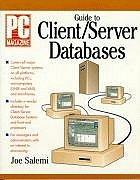Question
Even though RSA in principle can be secure (due to the diffuculty of factorization). But a concrete implementation of a RSA system can be insecure.
Even though RSA in principle can be secure (due to the diffuculty of factorization). But a concrete implementation of a RSA system can be insecure. As We discussed in class that RSA can be broken if prime p or q is selected inappropriately. Apart from that, RSA can fail if the protocol is not used appropriately, different RSA protocol failures do exist in real world. One of them is the following and please solve the problem to understand the reason. Suppose that three users in a network, say Bob, Bart, and Bert, all have public encryption exponent b=3. Let their moduli be denoted by n1, n2, n3 and assume that n1, n2, n3 are pairwise relatively prime. Now, suppose that Alice encrypts the same plaintext x to send to Bob, Bart, and Bert. That is, Alice computes yi=x3 mod ni, for 1 i 3. Describe how Oscar can compute x, given y1, y2, y3, without factorizing any of the moduli. Please generate an example to illustrate such an attack.
Step by Step Solution
There are 3 Steps involved in it
Step: 1

Get Instant Access to Expert-Tailored Solutions
See step-by-step solutions with expert insights and AI powered tools for academic success
Step: 2

Step: 3

Ace Your Homework with AI
Get the answers you need in no time with our AI-driven, step-by-step assistance
Get Started


